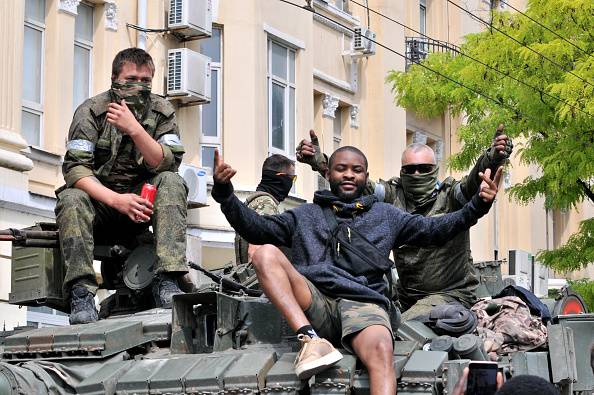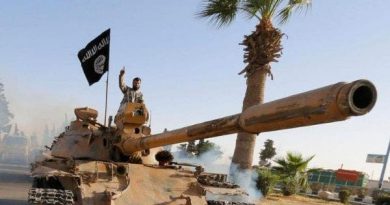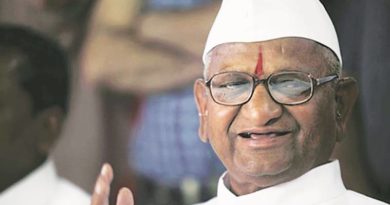OPINION: Turkey’s failed coup changed the country’s history—as did Wagner’s to Russia
Many lessons could be drawn from the two nights in Istanbul and Moscow, with each night having its own implications on the domestic front in the two nations.
On July 15, 2016, Turkish army officers attempted to stage a coup. The officers, backed by people in the army’s top brass, ordered the deployment of tankers and armored vehicles on the street. Some officers even headed to the state-run TRT’s headquarters, ordering a television host to read out ‘the coup declaration’. However, the coup’s plan fell apart, with Erdoğan emerging and delivering a speech that turned things upside down. By midnight, the pro-Erdoğan state apparatuses thwarted the coup, completing the mission in the second day—spelling the end of the most dangerous to Erdoğan’s rule.
After nearly seven years, however, Russia lived through an extremely similar moment, with Wagner group attempting to stage a coup and threatening to march towards Moscow. Many lessons could be drawn from the two nights in Istanbul and Moscow, with each night having its own implications on the domestic front in the two nations.
On June 23, 2023, Yevgeny Prigozhin, the head of Russia’s private military company Wagner, came out shaking Russia with vows and threats—even pledging to march towards Moscow. The Wagner attempted coup came at a delicate juncture through which the Russian war on Ukraine—raging since February 2022—is going.
This rebellion—or attempted coup—took place amidst mounting disagreements between the Russian ministry of defense and Prigozhin. The reasons behind such a surprise move against the Russian military and government remain unknown, though Prigozhin cited some justifications for the rebellion. He said the Russian military bombed his forces. Yet the war on Ukraine was among the reasons he mentioned, saying that the minister of defense Sergei Shoigu is to blame for the Ukraine setbacks. In addition, the Wagner rebels took control of Rostov-on-Don and the Southern Military District, even starting to advance on Moscow. A day later on, Russian president appeared, denouncing Wagner’s moves as treason and pledging to put down the rebellion.
However, the Wagner head’s plan was cut short after negotiations with Belarusian president Alexander Lukashenko. Under the deal reached with the Russian government, Yevgeny Prigozhin agreed to stand down, ordering his forces to stop the march on Moscow. For its part, the Russian state withdrew all the charges brought against Yevgeny Prigozhin and his forces under Article 279 of the Russian criminal code.
At this point, the Russian night came to an end—just like the Turkish night ended seven years ago. There are huge similarities and yet significant differences between the two nights. Just like the Russian rebellion, the Turkish ‘failed coup’ lasted for only one night. The attempted military takeover began with the army shutting down the streets in Ankara and Istanbul, with the commandos receiving orders to arrest president Recep Tayyip Erdoğan—in propria persona—a measure that would have been the apex of their steps.
The Turkish commandos attacked the resort in which the Turkish president was vacationing in Marmaris south of the country. They were armed with machine guns and hand grenades. Two of the resort’s guards were killed on that night. But unfortunately, the Turkish officers came belatedly. After receiving a tip from an anonymous source, the president was transferred from the resort via helicopter. The president then boarded a private jet that headed for Istanbul, with the pilot camouflaging the plane’s identity so that the radars treat it as a civilian aircraft instead. At 3:00 AM, Erdoğan finally emerged outside the Ataturk Airport surrounded by his supporters, who chanted slogans commending the president. At this point, the coup had officially failed, with Turkey’s strongman emerging even stronger.
The Wagner rebellion is said to have dealt a huge blow to Putin’s superficially powerful rule. After the news of the rebellion broke, Putin delivered a speech, accusing Wagner of treason. At the same time, Putin thanked the group for avoiding bloodshed, accusing the West of ‘sowing sedition between brothers.’ Thus, Putin appeared confused and perplexed, sending messages to those at home and abroad.
On the night of the Turkish failed coup, Erdoğan survived the planned arrest. Moreover, he demanded a means through which he could deliver a speech to the people after being denied access to state-run media outlets. The president used FaceTime to speak to the Turkish people, a move that had a great impact on the whole course of events, finally tipping the scale in favor of the president. “There is no power higher than the power of the people,” Erdoğan stated. “Let them do what they will at public squares and airports.”
As such, Erdoğan was responsive, firm and decisive. He addressed the Turkish people on the night of the attempted coup, denying them any chance to vacate the landscape for any other figures. Conversely, Putin waited for a full single day to address the Russians, with a low-key speech full of contradictions and conflicted remarks.
Yet the post-coup measures in both nations drastically differed. In Turkey, the state launched a massive crackdown on the Gulen movement, a grass-roots movement whose head Fethullah Gulen is accused by Turkey of being behind the failed coup. Tens—and perhaps hundreds—of thousands are reported to have been detained over links with the group, a onetime Erdoğan ally. Several other measures were taken, whether politically or militarily. The country even changed its political system from a parliamentary to the presidential system following a referendum conducted three years later. Thus, the failed coup was an opportunity for Erdoğan to cement his rule and further his agenda.
In Russia, the matter seems a little bit different. Like the Erdoğan-Gulen relationship, there has always been a Putin-Wagner link. But in the political corridors things always change, with enemies switching to become friends and vice versa.
Another dimension in the Wagner rebellion is that it took place during wartime. Interestingly, nearly all the Russian coups occurred during wartime, including that of Wagner. In Turkey, meanwhile, coups used to take place during peacetime. Yet the Turkish putsch was of political reasons since the military has always used to intervene in case it deems the country’s secularist system under threat. The army’s moves were primarily directed at Erdoğan and his political project. On the contrary, Wagner’s rebellion was caused chiefly by military reasons. The private military firm was dissatisfied with the Russian army’s performance in the war in Ukraine. Yet, the group has bad blood with the Russian defense chief, since he allowed their positions in Syria to be bombed by denying that Russia had any troops in the area that was targeted.
It’s noteworthy that it isn’t the first coup attempt that Russia witness during wartime. Russia’s communists staged their putsch in 1917, only one year before World War I came to an end. Russia was engaged in fierce battles against Germany, which prompted the Russian tsar to appoint the commander of the Russian navy in the Baltic as a defense minister. In 1920, Alexander Vasilyevich Kolchak, a Russian admiral and military commander, was deposed and executed by the Bolsheviks. He vociferously opposed the communist revolution which had broken out throughout the country.
In a nutshell, Russia’s Wagner-led June 23 rebellion is very comparable to Turkey’s July 15, 2016 moment. That day could be dubbed Russia’s July 15 moment, the point at which Russia will likely never be the same as it was before—exactly as it was in Turkey. There has been an attempted coup—rebellion—that has swiftly been put down. There have been betrayals among military commanders. There’s a political system that has violently been shaken. It’s indeed a make-or-break moment. The changes that would grip Moscow will be significant, but whether they are in favor or against President Vladimir Putin remains to be seen.
Mostapha Hassan Abdelwahab is the former editorial manager of the English edition of the Baghdad Post. He is focusing on Iraq, Iran and political Islam movements, with articles posted on the Herald Report, Vocal Europe, the Greater Middle East and other platforms.
Disclaimer: Views expressed by writers in this section are their own and do not reflect Milli Chronicle’s point-of-view.



